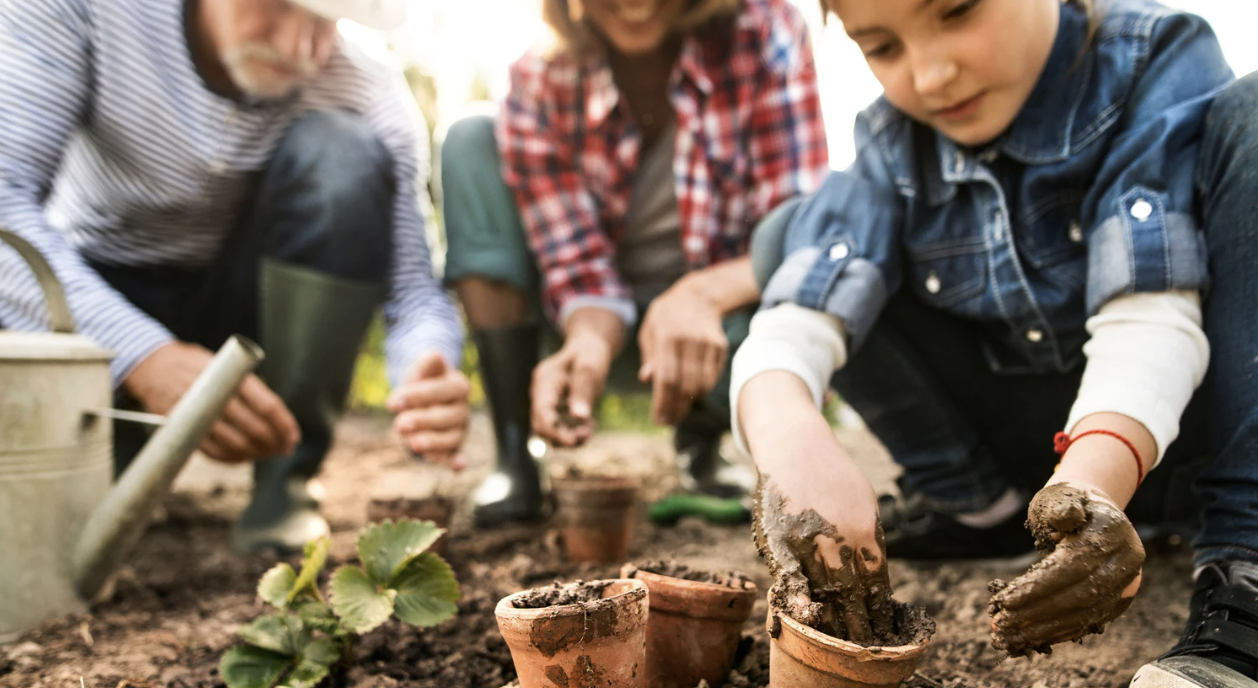So, you want to start a garden but feel completely overwhelmed by all the gardening lingo and advice out there? Don’t worry! Gardening doesn’t have to be complicated, and with the right approach, anyone can grow a beautiful, thriving garden—yes, even if you’re a self-proclaimed “gardening dummy.”
Whether you’ve got a sprawling backyard or just a small balcony, gardening is something anyone can do with a bit of patience, knowledge, and the right tools. In this beginner’s guide to gardening for dummies, we’ll break it all down into easy steps that’ll have you growing lush plants in no time!
Step 1: Know Your Garden Type
Before you start planting anything, it’s important to understand the kind of garden you want to create. Are you looking to grow vegetables, flowers, or maybe both? Different plants have different needs, so knowing what you’re working with will make things a lot easier.
- Vegetable Gardens: Perfect for growing fresh, homegrown produce like tomatoes, lettuce, and carrots. Make sure you have enough sunlight and good-quality soil.
- Flower Gardens: Bring beauty to your space with vibrant flowers. Choose plants that suit your climate and soil type.
- Herb Gardens: Great for small spaces! Herbs like basil, thyme, and rosemary are easy to grow and perfect for cooking.
Step 2: Start with Simple Plants
If you’re just starting out, it’s best to start small. Choose easy-to-grow plants that don’t require a lot of attention. Some good beginner plants include:
- Marigolds: Bright, easy to grow, and pest-repelling!
- Tomatoes: A beginner’s vegetable that thrives in most gardens.
- Lettuce: Grows quickly and doesn’t require much maintenance.
- Radishes: Fast-growing and a fun plant for new gardeners.
These plants are relatively low-maintenance and will boost your confidence as you get the hang of gardening.
Step 3: Understand Your Soil
The soil is the foundation of your garden, so make sure it’s healthy. If you’re starting with poor soil, it’s a good idea to improve it by adding compost or Ecoworm Soil Extract, an organic liquid fertilizer that helps build up soil fertility naturally.
Soil can be sandy, clayey, or loamy, and each type needs different care. Do a simple soil test to see what kind of soil you have, and then improve it accordingly. Adding organic matter, like compost or Ecoworm Soil Extract, can help improve soil structure, encourage earthworm activity, and promote healthy root growth.
Step 4: Watering Like a Pro
It’s easy to overwater or underwater your plants, so finding the right balance is key. A general rule is to water your plants deeply but infrequently. This helps plants develop deep roots and keeps them healthy in the long run. Here’s how to keep your plants hydrated:
- Water in the early morning to avoid evaporation.
- Water at the base of the plant, not over the leaves, to prevent mildew and disease.
- Check soil moisture by sticking your finger in the soil. If it feels dry 2-3 inches down, it’s time to water.
Step 5: Mulching for Success
Mulch is your garden’s best friend. It helps retain moisture, regulate temperature, and prevent weeds from taking over. Simply spread a layer of mulch (like straw, leaves, or wood chips) around your plants, and you’ll see better results with less effort. It’s a simple yet powerful trick that makes your garden thrive.
Step 6: Keep Pests in Check (Naturally!)
Every garden has pests, but you don’t need harmful chemicals to keep them at bay. Instead, use natural remedies like:
- Neem oil: An organic pest control that works wonders.
- Ecoworm Potassium Soap: A natural solution for pests that can be sprayed on plants to protect them without harmful chemicals.
- Beneficial insects: Ladybugs and other insects can help control harmful pests.
By using organic methods, you’re protecting your garden, the environment, and your health.
Step 7: Harvesting Your Rewards
Once your plants start growing, it’s time to harvest! Check your plants regularly for ripe vegetables, flowers, or herbs. For veggies, make sure you pick them before they get overripe. For flowers, deadhead (remove dead flowers) to encourage more blooms.
Gardening for Dummies Tip: Keep It Fun!
Remember, gardening is meant to be enjoyable, not stressful! Don’t worry if things don’t go perfectly—gardens are living, breathing ecosystems, and sometimes plants just don’t grow as expected. With time, you’ll get better and more confident in your gardening skills.
There you have it—gardening for dummies made simple! By following these beginner-friendly steps, you’ll be well on your way to creating a lush, beautiful garden that brings you joy all year long. From choosing the right plants to understanding soil and watering, each step is an opportunity to learn and grow, just like your garden.
And don’t forget: Ecoworm Soil Extract and Ecoworm Potassium Soap are great tools to help you create a thriving, sustainable garden. Whether you’re a newbie or a seasoned gardener, our organic products provide the support you need for a flourishing garden.
Happy gardening!


Comments are closed